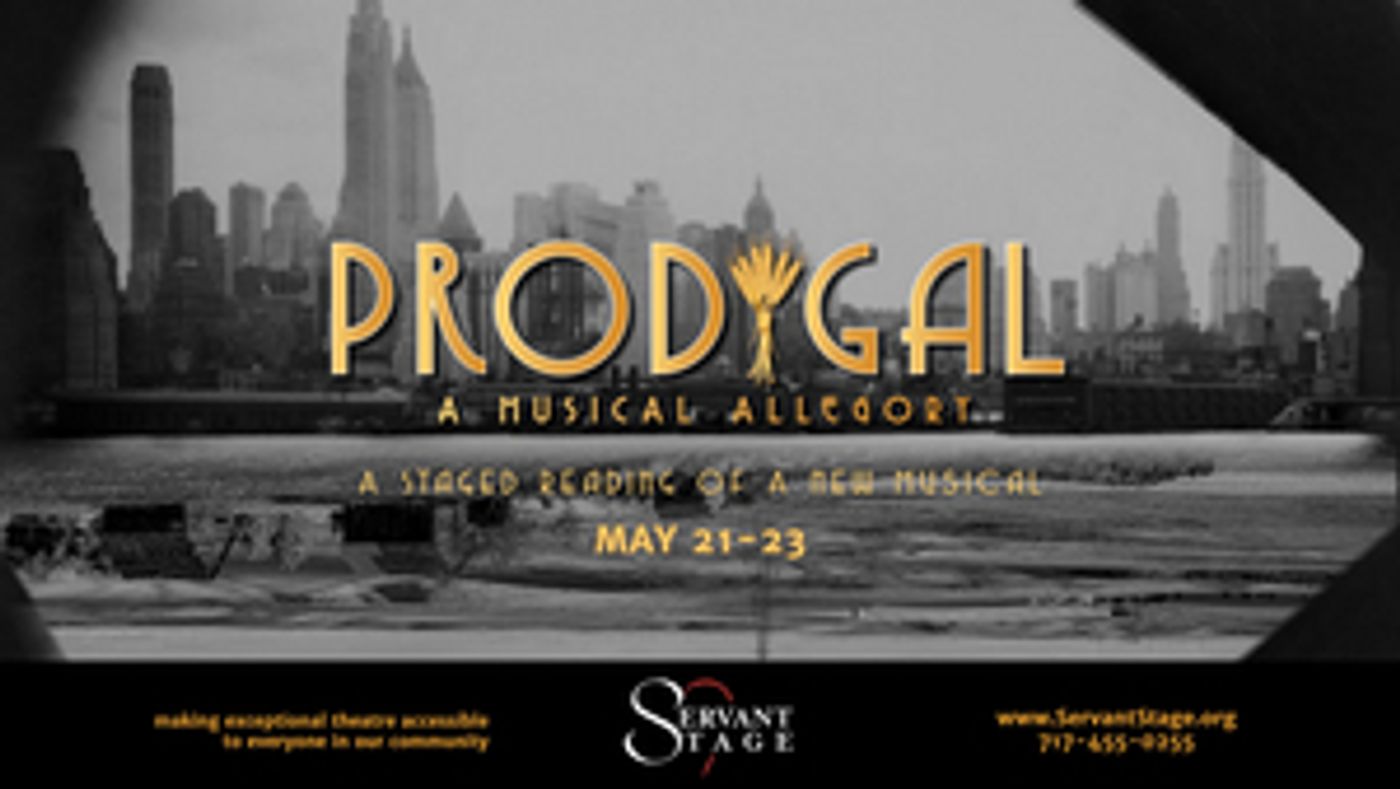Review: PRODIGAL at Servant Stage
See the workshop, send your feedback
 A new musical is always a thing to embrace. But what most audiences see is only the finished product of what might be years of hard work by writers, lyricists, composers, designers, directors, producers, and many other people. It's rare for a production to allow a large audience a chance to see how a musical prepares for its later full scale production.
A new musical is always a thing to embrace. But what most audiences see is only the finished product of what might be years of hard work by writers, lyricists, composers, designers, directors, producers, and many other people. It's rare for a production to allow a large audience a chance to see how a musical prepares for its later full scale production.
Servant Stage in Lancaster isn't just any theater company, however, While its goal is to produce family friendly but intelligent fare, and to be affordable entertainment for everyone, it's not afraid to take some risks that some of the edgiest theater companies wouldn't try - and one of those risks is full-audience public workshops of its shows, including new productions that haven't come to published fruition yet. Such is the case with PRODIGAL: A MUSICAL ALLEGORY by the talented local artist Tyler D. Hoover. Directed by Servant Stage's musical director Wally Calderon, the completed-to-date book and songs were performed on stage at Lancaster Alliance Church and taped for local audiences to enjoy at home as well.
You may be vaguely acquainted with the parable of The Prodigal Son in the gospels. But as it's told, it's not a fully fleshed-out story, just a description of a possible event of the rejoicing of a father whose miscreant son returns home. But surely there's more to it than that? Hoover realized that there must be details to such a tale, and filled in those many, many gaps with a highly relatable story of an American farmer and his two sons in the early go-go days of twentieth-century railroad developments and robber barons.
Robert Bigley plays Henry, the farmer coming from generations of New York State farmers, whose large properties abut the Hudson River and a strip of riverside property just suited for a rail line. Bigley has a fine, commanding voice, both in speaking and singing, and conveys his paternal authority fully in every scene. His two sons, throughout most of the show, are Barrett, who's happy to follow his father's lead, played by Caleb Hughes, and Diggory, played by Zachary Fernback, who's looking to the future and loves architecture and construction. While Diggory supports selling off the small area of riverbank property to the railroad, Barrett objects vehemently. Anxious to go to New York and be part of the new century, Diggory requests his inheritance up front - the strip of riverside land - and plans to go to New York.
At first blush, Diggory looks like New York may suit him perfectly. Not only is the railroad willing to pay handsomely for his land, but the company admires his vision and eagerness and hires him. Could Diggory actually make a success in his new life? He could, but he lacks the discipline to do it. Along the way, he makes friends - one a hard-bitten saloon bartender named Emma (Brianna Brady) and one a bit of a con artist, Jake (Brandon Cameron in particularly fine fettle). Fortunately or unfortunately, they're nearby when brother Barrett comes to call and sees Diggory at a low point.
There are some particularly beautiful scenes - Diggory's reunion with his father, Henry, at the mountain is one such - and portions of the farm's party are notable. One outstanding character in the show, besides Emma and Jake, is Diggory's uncle Everett (a part, much like Emma's, that Hoover plans to develop more before the show is complete). As played by local audience favorite Reji Woods, though, Everett might as well be a runner up for star of the show, so infectious is his boundless enthusiasm.
Outstanding songs include Emma's "Love That's Mine," Diggory's "Mr. Cooper, Sir" sung to his father, and "The Lost is Found," a joyous ensemble piece that was the last song performed but may best end up as the eleven o'clock (next to last) number for the finished show. The ending may be surprising, but not because it contradicts the original parable; rather, it reflects a great deal about real life for people besides Henry and Diggory.
Visit servantstage.com to watch the show online and to provide feedback for your opinions of the show's direction. You, too, can help create a musical.
Reader Reviews
Videos

